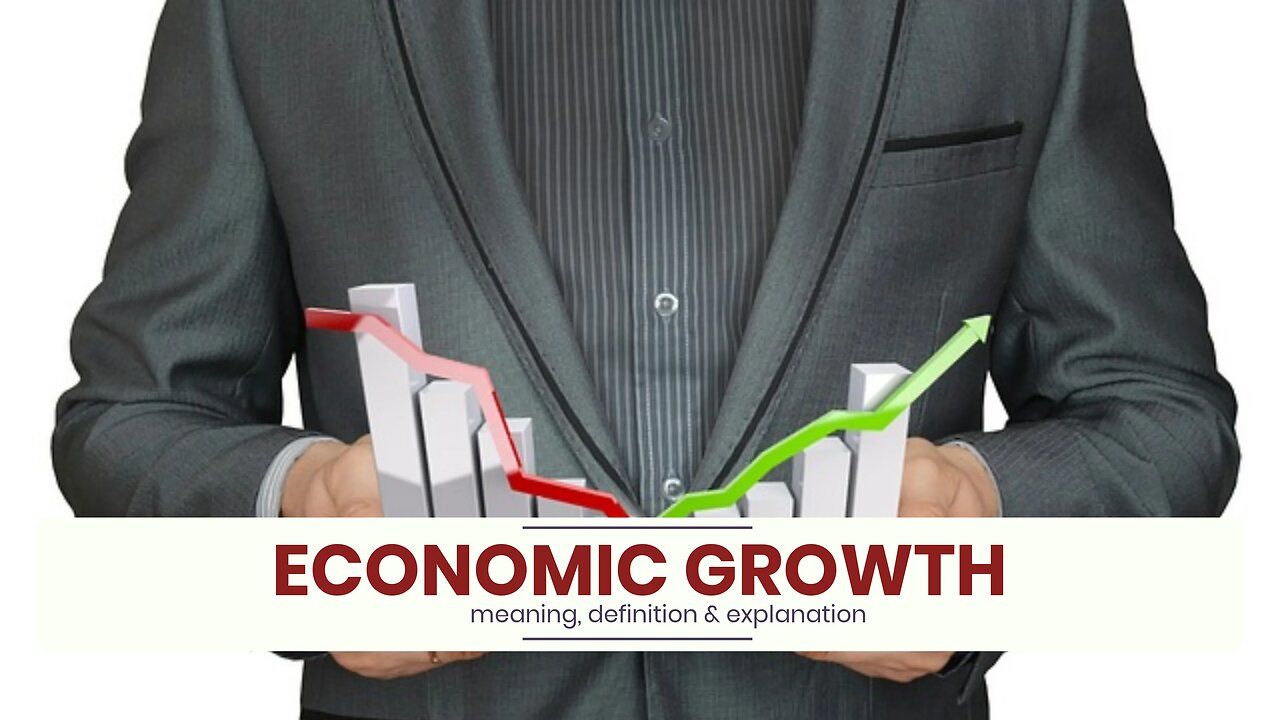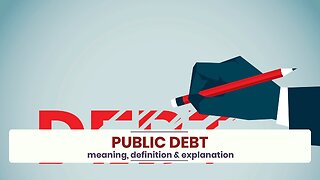Premium Only Content

What is ECONOMIC GROWTH?
✪✪✪✪✪
http://www.theaudiopedia.com
✪✪✪✪✪
What does ECONOMIC GROWTH mean? ECONOMIC GROWTH meaning - ECONOMIC GROWTH definition - ECONOMIC GROWTH explanation. What is the meaning of ECONOMIC GROWTH? What is the definition of ECONOMIC GROWTH? What does ECONOMIC GROWTH stand for? What is ECONOMIC GROWTH meaning? What is ECONOMIC GROWTH definition?
Economic growth is the increase in the inflation-adjusted market value of the goods and services produced by an economy over time. It is conventionally measured as the percent rate of increase in real gross domestic product, or real GDP, usually in per capita terms.
Growth is usually calculated in real terms – i.e., inflation-adjusted terms – to eliminate the distorting effect of inflation on the price of goods produced. Measurement of economic growth uses national income accounting. Since economic growth is measured as the annual percent change of gross domestic product (GDP), it has all the advantages and drawbacks of that measure.
The "rate of economic growth" refers to the geometric annual rate of growth in GDP between the first and the last year over a period of time. Implicitly, this growth rate is the trend in the average level of GDP over the period, which implicitly ignores the fluctuations in the GDP around this trend.
An increase in economic growth caused by more efficient use of inputs (such as labor productivity, physical capital, energy or materials) is referred to as intensive growth. GDP growth caused only by increases in the amount of inputs available for use (increased population, new territory) is called extensive growth.
The economic growth rate is calculated from data on GDP estimated by countries´statistical agencies. The rate of growth of GDP/capita is calculated from data on GDP and population for the initial and final periods included in the analysis.
In national income accounting, per capita output can be calculated using the following factors: output per unit of labor input (labor productivity), hours worked (intensity), the percentage of the working age population actually working (participation rate) and the proportion of the working-age population to the total population (demography). "The rate of change of GDP/population is the sum of the rates of change of these four variables plus their cross products."
-
 1:41
1:41
The Audiopedia
9 months agoWhat is PUBLIC DEBT?
53 -
 12:38
12:38
Talk Nerdy Sports - The Ultimate Sports Betting Podcast
3 hours ago4/5/25 - Talk Nerdy Sports – Madness. Money. Mayhem.
25.9K4 -
 3:18:37
3:18:37
I_Came_With_Fire_Podcast
12 hours agoTHE HUNDREDTH EPISODE!!!
44.6K7 -
 LIVE
LIVE
Gatoroz
4 hours agoTake Me Back To Verdansk
183 watching -
 LIVE
LIVE
STGKAMZZ
6 hours ago"🔥Blunt & Battle: Chill Vibes Only in COD Ranked! 🌼💨 Spring Saturdays Just Got Epic!"
134 watching -
 34:00
34:00
Tactical Advisor
4 hours agoRetiring This Rifle | Vault Room LIve Stream 019
25.6K9 -
 16:29
16:29
Sideserf Cake Studio
6 hours ago $2.31 earnedThis Cruise Ship Is A CAKE!
35K6 -
 14:49
14:49
Clownfish TV
21 hours agoNintendo Switch 2 BACKLASH! Gamers BOYCOTT Over Pricing?!
24.7K10 -
 24:17
24:17
JasminLaine
21 hours agoCTV Reporter DESTROYS Carney By Quoting His BOOK—His INSANE Answer STUNS Host
33.2K29 -
 24:47
24:47
World2Briggs
1 day ago $1.51 earned10 Cities Where The High Cost Of Living Just Isn't Worth It
21.7K10